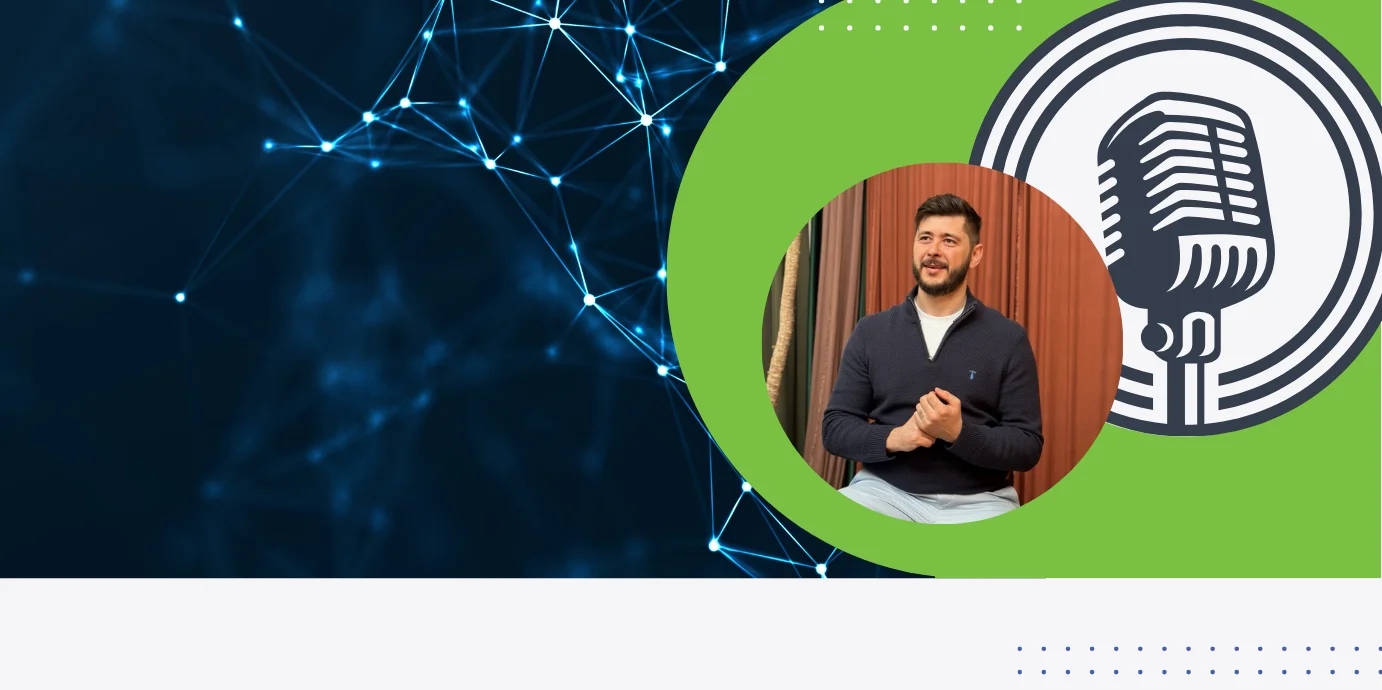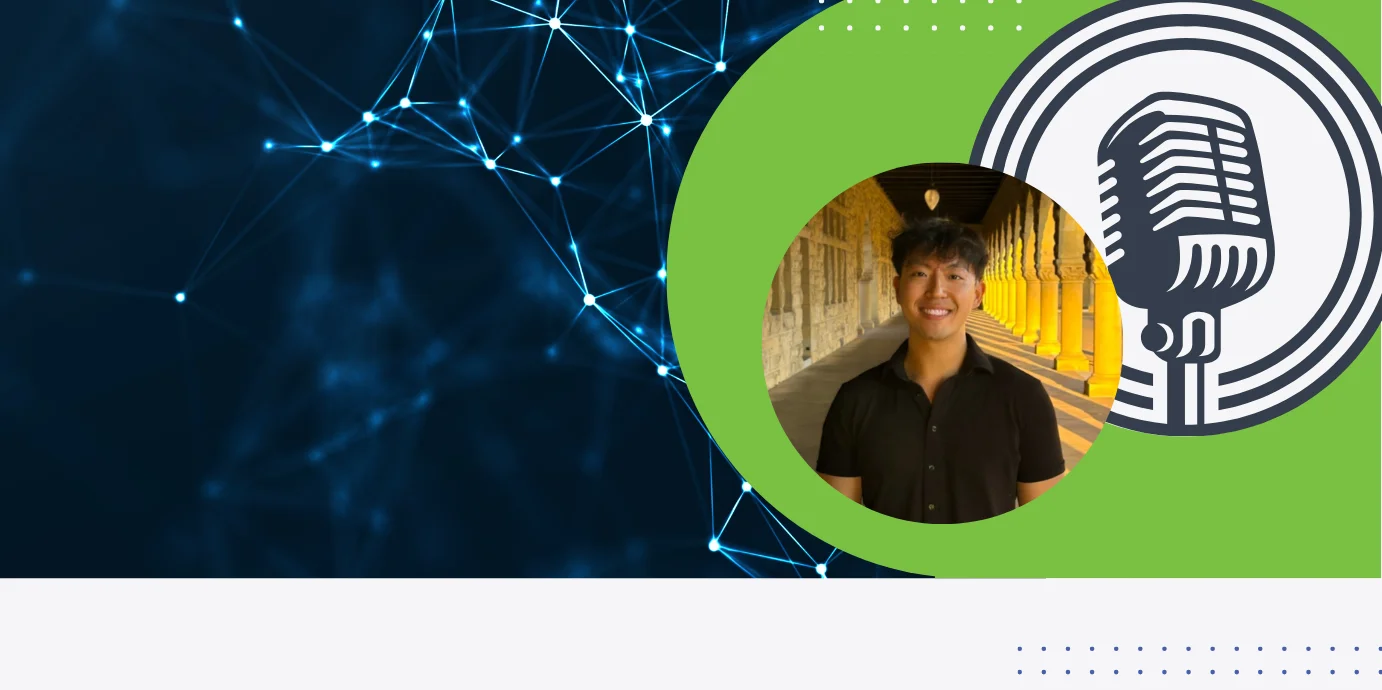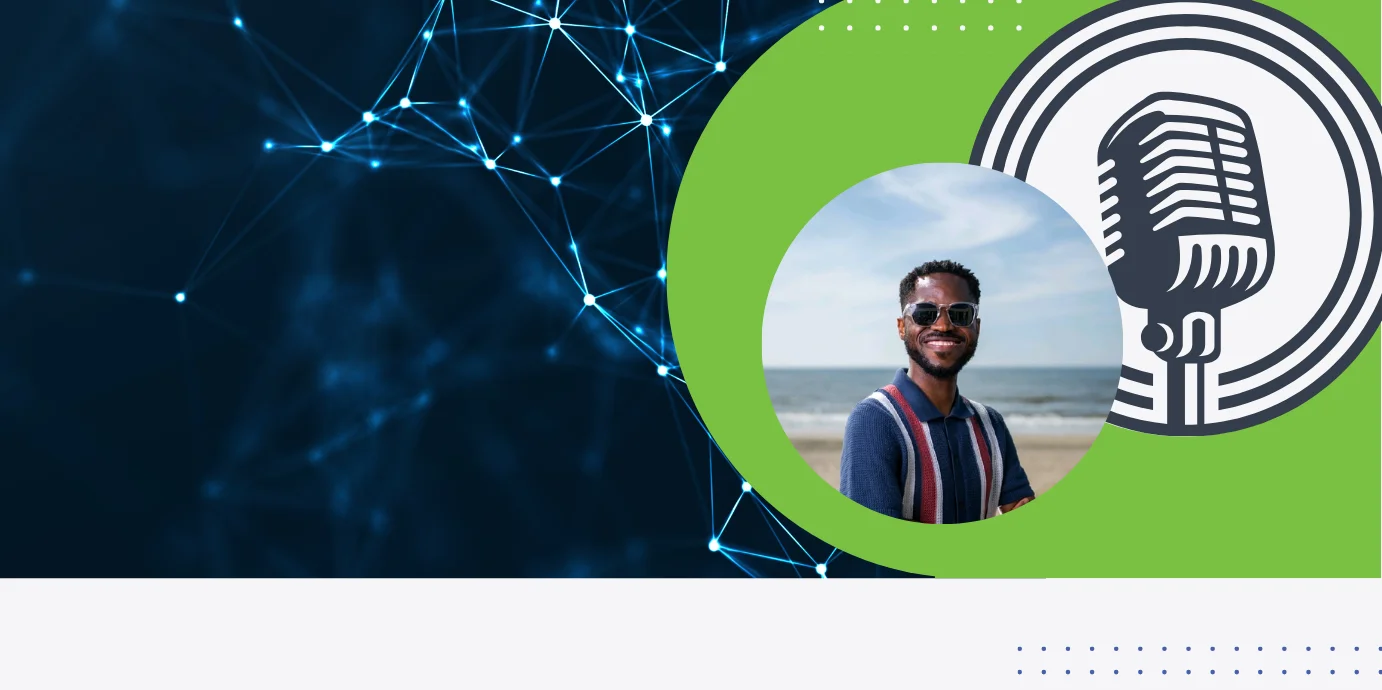
Roger Perkin at Computacenter- Episode 36 - The Route to Networking
05 July, 2023On episode 36, George Barnes was joined by Roger Perkin, the Technical Architect at Computacenter. You will hear some of the concerns Roger Perkin has with automation, and he gives us an insight into things he wishes he knew before entering the Networking industry.
Roger studied Electronics at Plymouth University and ended up specialising in Radar Repair. He wanted to investigate the networking and computer side of things and decided to step out of his first job at GCHQ and into his first role in server support. Working within server and desktop support, he then moved into a networking role and was heavily involved in radio communications around the world.
Like most Network Engineers, it all started with a computer. The world of networking is a vast and exciting one, and you don’t need to be a genius to get ahead. You might even start from scratch, as Roger did. It began with him taking computers apart from a young age, fixing them, installing new disks, and becoming familiar with the hardware. This is where the interest sparked and as they say, the rest is history.
One of the things he wishes he knew before entering the industry is having the hindsight to what he would be doing 10 years down the line. If he knew Networking was the way to go, he would’ve learned Python a lot sooner as it’s been a long path to get to where he is now.
Roger is a strong believer in learning through actual work experience rather than by working through a degree and doesn’t recommend university. From his perspective, it was 4 years of your time that pauses something you could’ve started 4 years previously. If he had done a Computer Science course, he would’ve learned a lot of the stuff he’s doing now but going into a job straight away will accelerate you more and learn at a faster rate.
Taking you to the present day, Roger works heavily around Automation. Some of the concerns he’s finding around Automation currently are the number of new tools that are being released almost daily. He’s seen a lot of them come out that are reporting that no coding is required. There’s going to be the hardcore Ansible and Python tools that everybody knows and trusts to get things done correctly but there are those that remove the need for coding, and all that is required is for you to instruct the system what you want it to do, and the algorithm does the rest for you. This is something that concerns him highly as things can go drastically wrong. The aim with them is to try and make networking easy but to do something properly you need people under the hood to fix things that go wrong. He advises people to steer clear of the tools that require no coding.
If Roger had infinite funding, he would build a massive lab that contains all the relevant equipment to test Computacenter’s products prior to deployment, with a replica of the live environment. This would allow him and his team to optimize their product for every customer and ensure quality before release. Testing things in isolation is not going to tell you how you’re going to work with them once launched into production. If you want to do more real-life testing in terms of how it works within the live environment, then they need additional hardware to do that.
To any graduates or college students looking to get kickstarted in the space, Roger suggests choosing something Networking related. Having something like a GNS3 or EVE-NG would be beneficial. Get a few Routers together, join them together, and understand IP addressing and how they work and how OSPF works. These basic things will come into play as you go along.
For some more great advice, give the full episode a listen now!




